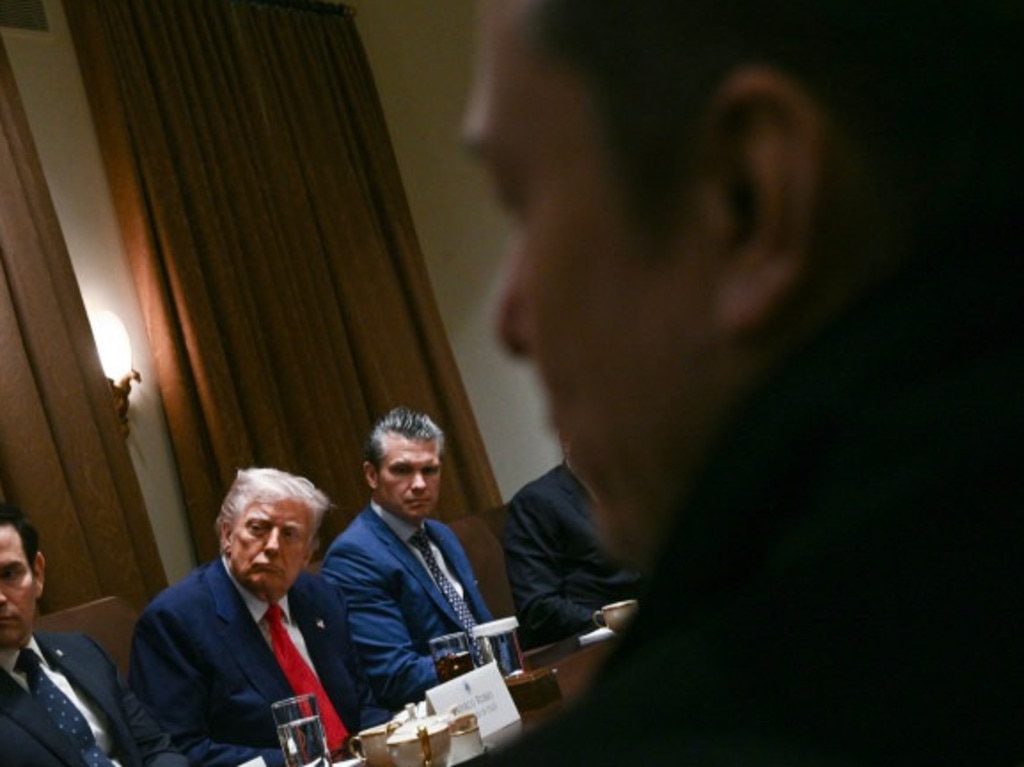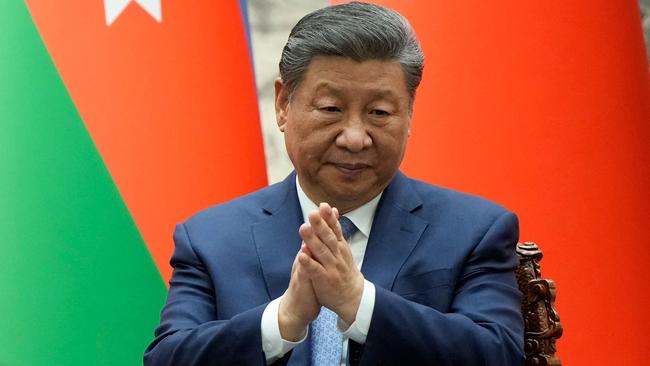
If hypocrisy had a house style, the Chinese ambassador’s latest dispatch in these pages would be its template. Xiao Qian’s essay attacking the US measures the gulf between Beijing’s words and deeds in seven-league boots.
In his telling, China is the guardian of global order. While there’s every reason to be disturbed about the recent actions of the US President, choosing a world run with Chinese characteristics demands a serious character check.
So let’s kick the tyres on what ambassador Xiao is selling.
He opens by condemning US tariffs as “unilateral bullying” that risks a return to “the law of the jungle where the strong prey on the weak”.
Curious, then, that it was China that launched more than a dozen trade strikes against Australia for the crime of asking how Covid-19 began. Barley, wine, beef, lobster, coal, timber: all unilaterally sanctioned. No talks, no negotiation, no rules.
It is part of a pattern of punishment. Lithuania’s sin was to host a Taiwanese representative office. Result? Trade ties disappeared.
Norway awarded the Nobel Peace Prize to Liu Xiaobo. China retaliated with a diplomatic freeze and a trade war, slashing Norwegian exports and sending a message to the world: cross Beijing and you will pay.
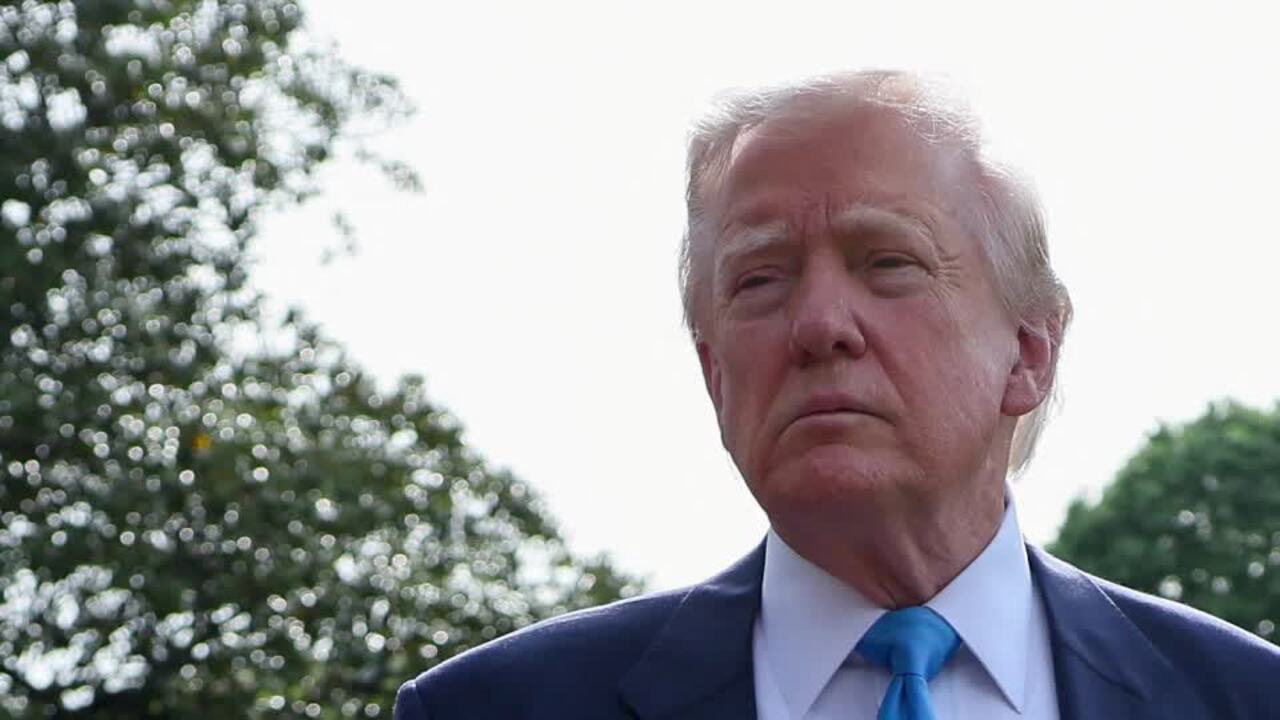
Xiao claims to support the aims of international arbiters such as the UN in preventing war, resolving disputes and promoting development. So why is China ignoring a binding ruling from the Permanent Court of Arbitration that found its sweeping claims in the South China Sea illegal? Beijing condemned the verdict, built and militarised artificial islands, and now harasses ships and planes in international waters.
If there were a hall of fame for diplomatic irony, this would be carved above the door: “China is a steadfast defender of multilateralism and the international rules-based order.” This from a regime that expels journalists, censors the internet, imprisons dissenters and systematically shuts foreign companies out of key sectors of its domestic market.
In industries from technology to finance to green energy, China imposes licensing barriers, demands joint ventures and favours heavily subsidised national champions. Its longstanding strategy of forced technology transfer and industrial espionage, including cyber attacks by state-backed groups such as APT10 and Volt Typhoon, has targeted Western corporations, defence contractors and critical infrastructure. This isn’t order, it’s hybrid warfare.

Xiao accuses the US of hegemonic politics. But didn’t his government just send three warships to lap Australia, conducting live-fire drills off our east coast? Didn’t it plant a floating barrier in Scarborough Shoal to block Filipino fishermen? Didn’t it erect an illegal surveillance installation near Ieodo in South Korean waters? Didn’t it clash with Indian troops in the Himalayas, causing the first fatalities between the two countries in 45 years? Didn’t it escalate tensions with Japan in the East China Sea, routinely sending ships and aircraft into disputed waters? And isn’t it threatening to forcibly annex Taiwan?
Then there’s the line that appeasement only emboldens aggressors. Here, at last, Xiao says something true, and something the Albanese government would do well to ponder.
For decades the West placated China, believing integration would lead to liberalisation. We let it into the World Trade Organisation, offshored our factories and turned a blind eye to intellectual property theft and trade distortions. In return, China built a surveillance state, crushed Hong Kong, silenced dissent and prepared for war.
Xiao urges resistance to “unilateralism and protectionism”, a stirring call if it weren’t coming from one of the most protectionist economies on Earth. China manipulates its currency, demands technology transfers from foreign firms and subsidises entire industries, allowing them to flood global markets and kill competition. Solar panels, electric vehicles and batteries are all backed by, and in service of, the Chinese Communist Party.
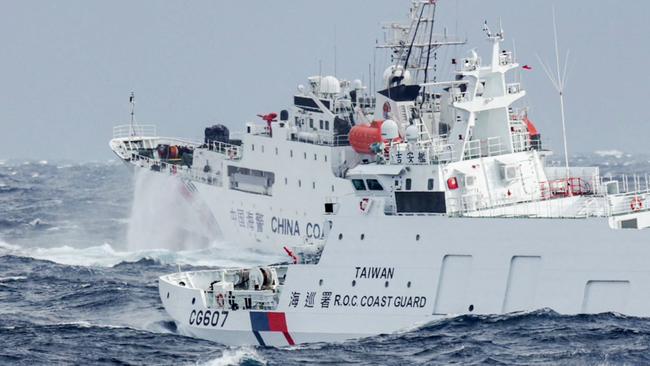
The ambassador insists China is “accelerating its green transformation”. The spray job may be green but lift the bonnet and the engine runs on coal.
China burned more coal in 2024 than the rest of the world combined, about 58 per cent of global consumption. It is building new coal-fired power stations at the rate of nearly two a week and produces 35 per cent of the world’s carbon emissions. The solar panels it exports are manufactured with fossil fuel and linked to forced Uighur labour in Xinjiang.
Xiao touts China’s investment appeal. But foreign capital is voting with its feet.
In 2024, net foreign direct investment turned negative for the first time in decades. Businesses are not just pulling money out; they are moving operations. A Bain & Company survey found nearly 70 per cent of companies were shifting production elsewhere, up sharply from 2022. The reasons are clear: rising geopolitical risk, opaque regulations, state interference and fears over intellectual property theft.
Meanwhile, China’s military build-up continues at a pace unseen by any nation since World War II. It has doubled its nuclear arsenal, expanded its navy and is rehearsing blockades of Taiwan. Yet we are asked to believe this arms race is in the service of peace. As if gunboat diplomacy on our doorstep is a gesture of goodwill.
Xiao is right: Donald Trump, by temperament, inclination and deeds, is dismantling the order his nation spent decades building and defending. Trump creates a void into which deceptions such as the ambassador’s essay pour. Xiao exploits real fears and grievances.
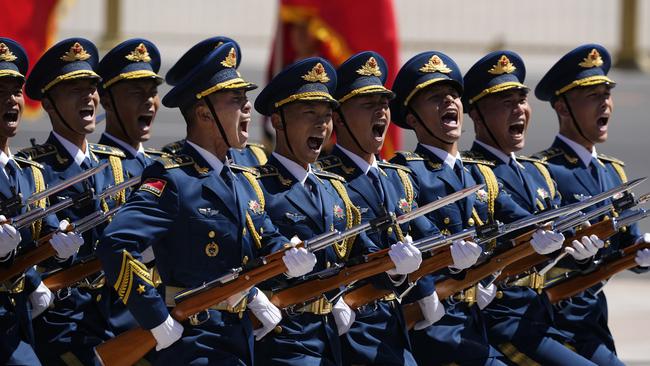
The ambassador would have us believe Xi Jinping is a safer option than Trump. But it is not a real choice at all, only the illusion of one. There are still checks and balances on an American president; in China, only one man is truly free. Trump disrupts the order. Xi bends it to his will and wants to make us slaves to it.
Xiao would have us forget what China has done and focus only on what it says. Perhaps he thinks we’re stupid and, as a close observer, probably sees our election campaign as proof of that point. No doubt the usual chorus of useful idiots will amplify the ambassador’s talking points. No doubt our government will run its usual lame line that we will co-operate where we can and disagree where we must, as China continues to push and we retreat.
Still, it is good that Xiao was given space in a national newspaper to share his views. It exposes the strategy Beijing uses in every possible forum: take a sliver of truth, distort it and deploy it to undermine trust in open societies.
And the courtesy of free speech might give the ambassador pause to consider this: in what Chinese paper would a foreign critic be given the same freedom? Where are the Chinese publications that dare to criticise the Communist Party?
That is what makes our system and America’s better than his. The right to disagree isn’t punished with imprisonment or death. Some may see free speech as a small thing; I see it as the only thing that stands between us and tyranny. I am happy to see it extended even to someone who, if his world were realised, would take it from me.
Chinese diplomats often season their rhetoric with Confucian platitudes, the moral maxims the Cultural Revolution once tried to erase from history.
Here’s one from our side: the best predictor of future behaviour is past behaviour. But, frankly, that is too mild. In the days when China was hitting Australia with trade sanctions, there was talk of Beijing seeking a demonstration effect – a warning to other impudent countries – captured in an old idiom: kill the chicken to scare the monkey.
In that spirit, I offer this ancient Australian riposte: I wouldn’t trust Beijing to run a chook raffle.


